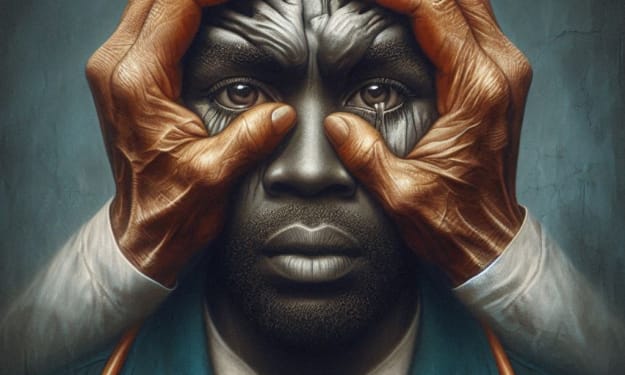The Malaria Vaccine: A Game-Changer in the Fight against Disease
l.Introduction to malaria and its global impact II. Previous prevention and treatment options for malaria III. The development and testing of the malaria vaccine IV. The potential impact of the malaria vaccine on global health V. Challenges and considerations in implementing the malaria vaccine VI. Conclusion: The promise of the malaria vaccine in the fight against disease

Introduction to malaria and its global impact
Malaria is a disease caused by parasites that are transmitted to humans through the bites of infected mosquitoes. It is a major global health problem, particularly in tropical and subtropical regions, where it is a leading cause of death and disease.
Four parasites cause malaria in humans: Plasmodium falciparum, Plasmodium vivax, Plasmodium ovale, and Plasmodium Malaria. P. falciparum is the most deadly and is responsible for the majority of malaria-related deaths worldwide.
Symptoms of malaria typically include fever, chills, headache, muscle pain, and fatigue. In severe cases, it can lead to coma and death. Children, pregnant women, and people with weakened immune systems are particularly vulnerable to the disease.
Malaria can be prevented through the use of insecticide-treated bed nets, insect repellents, and antimalarial drugs. It can also be effectively treated with prompt and appropriate medical care.
Despite the availability of prevention and treatment measures, malaria has a significant impact on global health. significantly impacts It is estimated that there were 229 million cases of malaria worldwide in 2019, resulting in approximately 409,000 deaths. The majority of cases and deaths occur in sub-Saharan Africa, where the disease is a leading cause of morbidity and mortality.
Malaria also has a significant economic impact, particularly in low- and middle-income countries. It can lead to absenteeism and decreased productivity, which can harm economic development.
Efforts to control and eliminate malaria have made significant progress in recent years, with the number of malaria cases and deaths declining globally. However, the disease remains a significant public health challenge, and continued efforts are needed to maintain and build on these gains.
Previous prevention and treatment options for malaria
There are several prevention and treatment options for malaria.
Prevention measures include
- Insecticide-treated bed nets: These are mosquito nets that have been treated with insecticides to kill or repel mosquitoes. They are an effective means of preventing mosquito bites while sleeping and are particularly useful in areas with high malaria transmission.
- Insect repellents: The use of insect repellents can help to prevent mosquito bites and reduce the risk of malaria transmission. Repellents can be applied to the skin or clothing, or used as a spray.
- Antimalarial drugs: Chemoprophylaxis, or the use of antimalarial drugs to prevent the development of malaria, can be effective in preventing infection in people living in or travelling to areas with a high risk of malaria transmission. The most commonly used antimalarial drugs for chemoprophylaxis are chloroquine, mefloquine, and doxycycline.
- Vaccines: There are several vaccines under development for the prevention of malaria. The most advanced of these is called RTS, S/AS01, which has shown promising results in clinical trials and has been recommended for pilot implementation in several countries.
Treatment options for malaria include
- Antimalarial drugs: The type of antimalarial drug used to treat the disease will depend on the species of the parasite causing the infection and the severity of the illness. Commonly used antimalarial drugs include artemisinin-based combination therapies (ACTs) such as artemether-lumefantrine and dihydroartemisinin-piperaquine.
- Supportive care: In addition to antimalarial drugs, people with malaria may also require supportive care to manage symptoms such as fever and dehydration. This may include medications to reduce fever and pain, and fluids to prevent dehydration.
- Severe cases: In severe cases of malaria, hospitalization may be necessary to provide intensive supportive care, including oxygen therapy and intravenous fluids.
It is important to note that prompt and appropriate treatment is essential for the successful management of malaria. If left untreated, the disease can progress quickly and can be fatal.
The development and testing of the malaria vaccine:
The development of a vaccine for malaria has been a significant public health goal for decades. There are several vaccines for malaria in development, with the most advanced being RTS, S/AS01. This vaccine was developed by the pharmaceutical company GlaxoSmithKline (GSK) in partnership with the PATH Malaria Vaccine Initiative and has undergone extensive testing in clinical trials.
The RTS, S/AS01 vaccine is designed to protect against Plasmodium falciparum, the most deadly species of parasite that causes malaria. It works by stimulating the body's immune system to produce antibodies that attack and kill the parasites.
The vaccine has undergone several clinical trials, including a large-scale phase 3 clinical trial involving more than 15,000 children in sub-Saharan Africa. The results of the trial, published in 2015, showed that the vaccine provided moderate protection against malaria, with a vaccine efficacy of approximately 39% in children aged 5-17 months and 36% in children aged 6-12 weeks.
The potential impact of the malaria vaccine on global health:
If successfully developed and implemented, a malaria vaccine has the potential to have a significant impact on global health. Malaria is a leading cause of death and disease in tropical and subtropical regions, particularly in sub-Saharan Africa. A vaccine could help to reduce the burden of the disease and save lives, particularly in areas with high malaria transmission.
In addition to its potential to reduce the burden of disease, a malaria vaccine could also have economic benefits. Malaria can lead to absenteeism and decreased productivity, which can harm economic development. A vaccine could help to reduce these costs and contribute to economic growth.
Challenges and considerations in implementing the malaria vaccine:
There are several challenges and considerations to be taken into account in the implementation of a malaria vaccine. One of the main challenges is the cost of the vaccine and the need for ongoing funding to sustain vaccination programs. In addition, there may be logistical challenges in delivering the vaccine to the populations that need it most, particularly in remote and underserved areas.
Another consideration is the need to maintain and strengthen existing prevention and control measures, such as the use of insecticide-treated bed nets and antimalarial drugs, even after the introduction of a vaccine. This is because the vaccine is not expected to provide complete protection against malaria, and there is a risk of the development of resistance to the vaccine if it is used as the sole means of prevention.
Conclusion: The promise of the malaria vaccine in the fight against disease:
The development of a vaccine for malaria is a major public health goal, and the RTS, S/AS01 vaccine is the most advanced candidate to date. While it has shown promising results in clinical trials, more work is needed to refine the vaccine and ensure its efficacy and safety. If successfully developed and implemented, a malaria vaccine has the potential to save lives and reduce the burden of disease in tropical and subtropical regions. However, it will be important to consider the challenges and considerations involved in its implementation and to maintain and strengthen existing prevention and control measures.
About the Creator
shammu
I am a content writer at freelancer and have been working in this field for the past few years. I always put my best efforts to deliver quality work. I am very hardworking, honest, and dedicated to my work.
Enjoyed the story? Support the Creator.
Subscribe for free to receive all their stories in your feed. You could also pledge your support or give them a one-off tip, letting them know you appreciate their work.






Comments
There are no comments for this story
Be the first to respond and start the conversation.